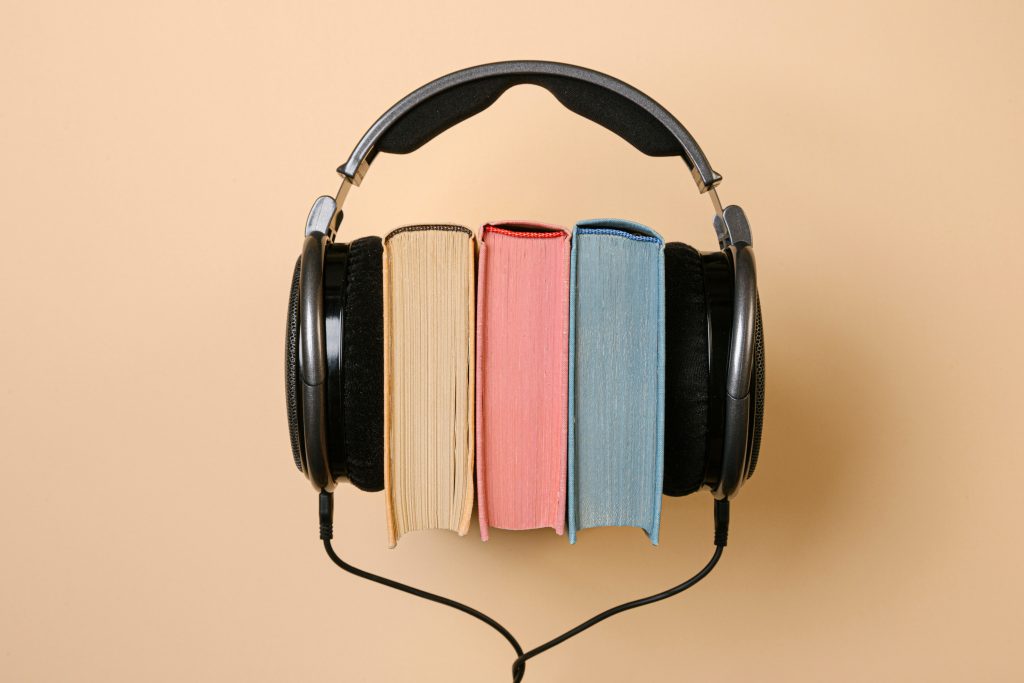
Is listening to a book the same as reading it?
No, not quite.
Does it mean it hasn’t really been ‘read’?
No, I wouldn’t say that either.
I am one of 55 million who reportedly consume at least one audiobook a year. In fact, I listened to six. It’s an industry that, like it’s podcasting counterpart, has boomed in recent years, and rather more so since the global pandemic that kept a lot of us inside our homes for a large part of 2020.
Despite the growth of the industry and its rising popularity, enjoying audiobooks can be a polarising concept. The ‘great reading debate’, which discusses the legitimacy of consuming books in this format, argues that the two are not the same, often accompanied with disdain for the audio counterpart. This attitude is demonstrated mostly by ‘traditional’ print-copy readers, often the same individuals who take umbrage with the steady rise of the e-book and wish to preserve the original art of reading and storytelling.
If you really consider human history, the audiobook may be the closest to replicating the earliest forms of storytelling and have a rightful place in the book publishing market. Visual and oral storytelling were our first forms of communication, and tales of life, hunting and rituals were our first ‘stories’ back before 30,000 BC. It is hard to deliberate on the first ‘printed’ form of stories. When does a symbol more closely represent a written word than an image? The Egyptian hieroglyphs come to mind here. The distinction between depictions of stories in a physical form makes it hard to determine when the first story was written. What can be sure though, is that audio consumption is by no means a new concept in the experience of stories.
I get it, though. Listening to an audiobook is not for everyone. I had a great deal of trouble incorporating audiobooks to my metaphorical bookshelf. It’s not easy to hear the narration of a novel if you’re so used to your own internal vocalisation of text in your head. That, and the absence of a physical copy to hold and turn each page are not easy things to forget.
So what are the favourable factors then?
Today you would be hard-pressed to find a novel that doesn’t have an audiobook version, and for good reason. Audiobook production has seen a similar boom as e-books, increasingly expanding as we head in a more digitally orientated direction. Similarly, the extent of podcasts has been an encouraging factor for the audiobook industry as the popularity of the format increases.
There are many benefits to an audiobook that account for this emerging popularity. For one, the hands-free practicality of audio narration sings to my multi-tasking sensibility and I’m sure of that in others too. Stephen Fry has followed me around the house performing menial tasks such as the hanging up of laundry and dish washing, as well as down the street to the shops, and even – after a particularly engrossing cliff-hanger – accompanied me on a morning run when I just couldn’t put him down.
There have been times that my experience of a book has been greatly added to by narration and – dare I say it – even better than reading it in a physical form. The recognition of the popularity of this format has given way to the emergence of truly captivating voice actors to adapt to the platform. I grew up with the Harry Potter audiobooks on repeat so it’s no wonder that to this day Stephen Fry comes top of my list here. Additionally, collaborations between narrators to perform with a full cast of voices is not unheard of in ‘ensemble’ novels these days. Daisy Jones and the Six by Taylor Jenkins Reid is an example of this, boasting the talents of Benjamin Bratt and Judy Greer among a well-rounded cast to bring an added element of personalisation to Reid’s characters.
You don’t have to take my word for it though, there are awards for this line of work. It’s called the Audie Awards and it is well worth checking out for some excellent recommendations from the past year if you wanted a guaranteed good place to start.
If memoirs or biographies are your thing then I can’t recommend considering the audiobook format more. Non-fiction and autobiographies lend themselves well to this medium. More often than not, the narration is provided by the author in these cases. After all, who better to read A Life on Our Planet by David Attenborough to you than the man himself?
Audiobooks may not appeal to everyone, but they certainly have their place in the publishing industry, and rightfully so. It’s up to the individual to determine how they best and most enjoy consuming literature, whatever form that may take. Perhaps you need to hold a book in your hands and turn the page to really engage with it, perhaps you favour a more portable e-book and the flexibility that it provides. Maybe you have a headphone in your ear and prefer narration. I don’t think one experience is superior to another when it comes to appreciating the work of authors.
Even still, perhaps reading has become a hybrid mix of platforms. My bedside table could vouch for this: a Kindle, a tall stack of novels, and headphones dominating the surface space. I think variety is important and anything that keeps us reading and supporting the work of authors and publishers, well that’s even better.
Emma Fuelling – Publishing Intern
